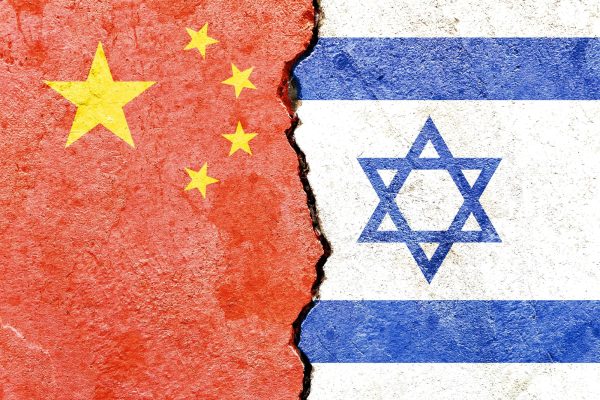In August 2021, the Haifa Port was inaugurated with much fanfare, highlighted by the arrival of a giant vessel from the Chinese shipping giant, COSCO.
This marked the first docking of a cargo ship at the newly established port, operated by Shanghai International Port Group (SIPG), with COSCO being a shareholder in the latter. This event was seen as a significant step for both Israel and China, as the port was built to accommodate giant ships and was expected to become a crucial hub for the trans-shipment of containers.
As expected, COSCO shifted its operations in Israel to the new port, leading to a surge in activity in a short period. By the end of 2022, the Chinese company had captured 88% market share of the transshipment sector in the country. However, due to the outbreak of war in October, COSCO decided to halt the transfer of transshipment cargo through the port, causing a significant blow to its operations. The volume of container transshipment at the port decreased drastically, with November witnessing a sharp drop to only 2,800 containers.
Last week, COSCO announced that it would cease its operations in Israel, making it the first and only company to completely cut ties with the country’s ports. While other shipping giants have announced the suspension of their activities through the Red Sea but continue to maintain trade relations with Israeli ports in the Mediterranean, COSCO has severed all ties with Israel. This decision appears to be a principal one by the Chinese government, rather than being influenced by the Houthi threat.
The Haifa Port had started its operations with a strong tailwind from COSCO. In the second quarter of 2022, the Chinese port loaded approximately 9.6 thousand containers compared to 7.4 thousand containers at the competing Haifa port. In a short time, Chinese control tightened, and by the third quarter of the same year, the port had captured 88% of the market share. This led to a drastic decrease in the loading of containers at the old Haifa port, with only 1,500 containers being loaded there.
However, the impressive numbers of containers at the Gulf port were affected in the third quarter of 2022 when Israel’s Zim moved its operations there, becoming the main customer of the port. By the first quarter of 2023, the Gulf port loaded 26.3 thousand containers, out of almost 30 thousand container loadings at all Israeli ports during the same period. Meanwhile, the old Haifa port loaded only 2,750 containers. In the second quarter, the Gulf port loaded almost 30,000 containers, accounting for 80% of all containers in Israel. At the same time, the old Haifa port loaded only around 340 containers.
However, the situation changed in October when the Houthi rebels in Yemen, showing solidarity with Hamas, began attacking ships bound for Israel in the Bab al-Mandab strait. The strait connects the Arabian Sea with the Red Sea and is critical for ships traveling from the East to Europe. This led to a sharp drop in loading at all Israeli ports, and in October and November, the Gulf port loaded only about 4,260 and 2,900 containers, respectively. In the same months, the old Haifa port loaded fewer than 200 containers.
The Port of Ashdod, located in the south, also saw a sharp decrease in container loading, from 530 containers in the third quarter of 2023 to 180 and 164 containers in October and November, respectively. A similar situation was seen at HCT’s southern port, with loading dropping from about 3,600 containers to 1,550 and zero in October and November, respectively. As a result of the Houthi threat, many shipping companies decided to change their routes, circumnavigating the African continent, and leading to a substantial increase in sea freight prices.
One of the major players in the shipping industry, COSCO, also changed its route but announced a full cessation of operations in Israel until further notice. This means that its ships will now end their journey at the port of Piraeus in Greece, skipping the Israeli port and dealing it a painful blow.
Although a shipping industry official has played down the impact of this move, defining it as a “light blow in the wing,” the sharp drop in the number of operations diverting containers from the Chinese port to other hubs in the Mediterranean, along with a general decrease in container volume, is a significant concern for the Gulf port’s future.

